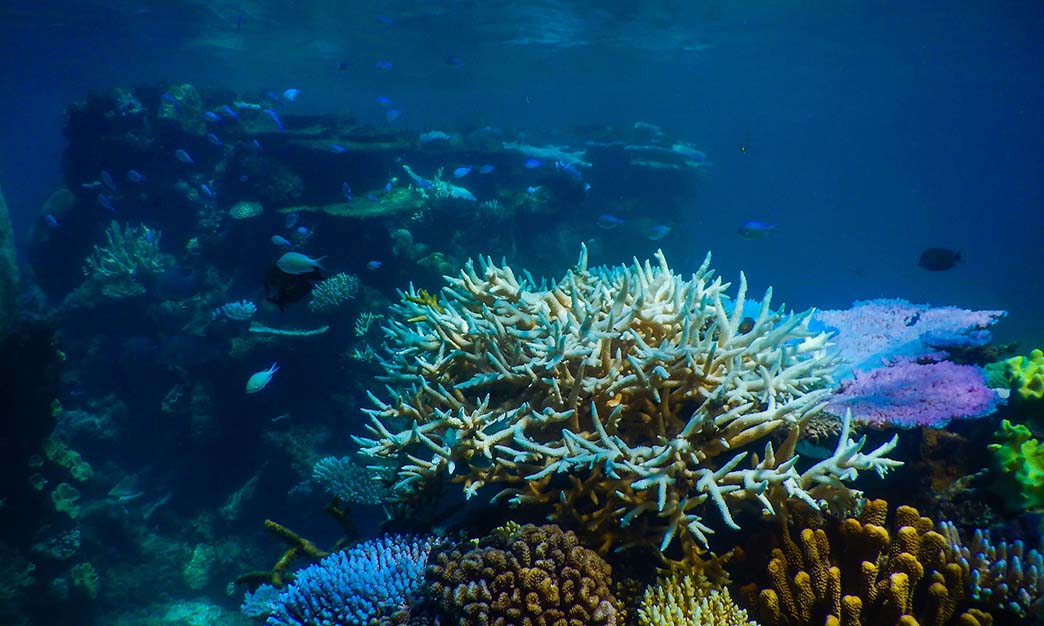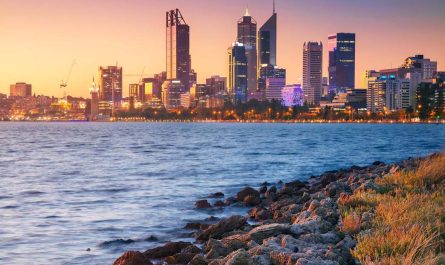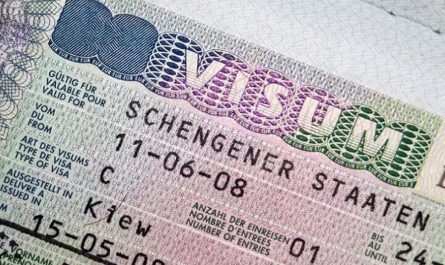I have had the privilege of venturing to some of the most breathtaking destinations across the globe. One place that has left an indelible mark on my heart and soul is the Great Barrier Reef, a natural wonder of unparalleled beauty and diversity. I will share a wealth of knowledge and firsthand tips to ensure your voyage to the Great Barrier Reef is nothing short of extraordinary.
Essential Travel Gear:
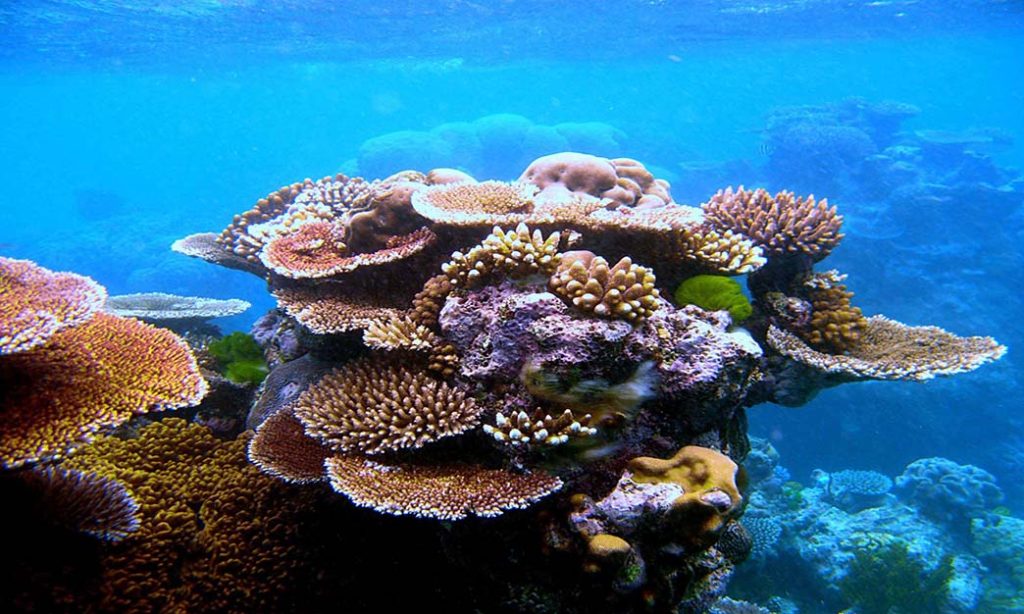
Before embarking on your Great Barrier Reef adventure, it’s essential to pack the right gear. Here are some must-haves for your journey:
- Snorkeling Gear: Whether you choose to rent or bring your own, ensure you have a well-fitting snorkel, mask, and fins. A rash guard or wetsuit can also enhance your snorkeling experience, especially for extended sessions.
- Sun Protection: The Australian sun can be harsh, so don’t forget high SPF sunscreen, quality sunglasses, and a wide-brimmed hat.
- Waterproof Camera: Capture the vibrant marine life and stunning underwater landscapes with an underwater camera or a dependable waterproof case for your smartphone.
- Insect Repellent: If you plan on exploring rainforest areas near the reef, insect repellent is a valuable addition.
- Reusable Water Bottle: Reduce plastic waste by carrying a reusable water bottle. Safe drinking water is readily accessible at most locations.
- Dry Bags: Keep your valuables safe and dry, especially during boat trips and water activities.
What to Wear:
The Great Barrier Reef boasts a tropical climate, so lightweight and breathable clothing is the key. Opt for swimsuits, shorts, and comfortable T-shirts. Don’t forget a pair of comfortable walking shoes for onshore activities and reef walks. Most places in the region adhere to a casual dress code, even in the evenings.
Local Weather:
Understanding the local weather is crucial for planning your trip. The Great Barrier Reef experiences two primary seasons: the wet season (November to April) and the dry season (May to October). The dry season offers milder temperatures and less rainfall, making it the preferred time for most travelers. However, the wet season can also be rewarding, with fewer crowds and lush, green landscapes.
Embrace the Local Culture:
Respecting local culture is a fundamental aspect of responsible travel. In the Great Barrier Reef region, you’ll have the opportunity to immerse yourself in the rich culture of the Aboriginal and Torres Strait Islander communities. Engaging with their traditions, art, and stories can provide a deeper appreciation for the region’s history and heritage.
Travel Equipment:
If you plan to explore beyond the reef, investing in a high-quality backpack and sturdy walking shoes is wise. Many parts of the region offer hiking and rainforest experiences that you won’t want to miss.
Currency Exchange:
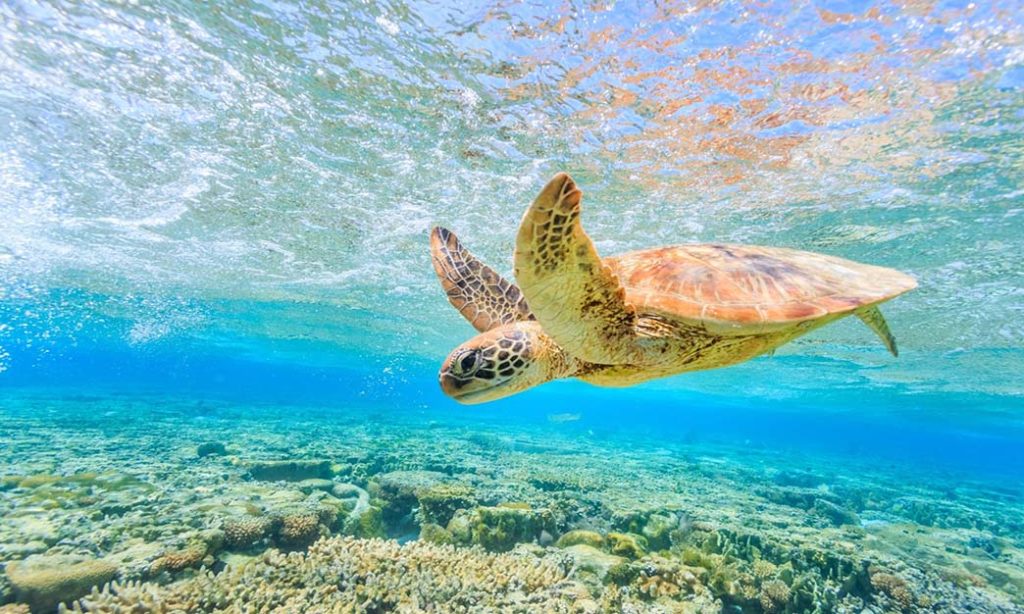
The official currency in Australia is the Australian Dollar (AUD). It’s a good idea to exchange some currency before your trip for convenience, but ATMs are widely available for cash withdrawals. Credit cards are accepted in most places.
Upon touchdown at major international gateways such as Brisbane or Sydney, you’ll encounter currency exchange counters. My experience has revealed that these counters often present competitive exchange rates. They are undeniably convenient, making them an excellent choice for converting a small amount of your home currency into Australian Dollars. This initial exchange can cover immediate expenses like transportation and a quick meal.
For substantial currency exchange or if you prefer the most competitive rates, visiting a bank branch is a prudent choice. Australia boasts a robust banking network, and major institutions like Commonwealth Bank, ANZ, and Westpac are scattered across the region. Most of these banks offer favorable exchange rates and can efficiently facilitate your currency exchange.
ATMs are liberally scattered across cities and towns within the Great Barrier Reef vicinity. With your debit or credit card, you can conveniently withdraw cash from these ATMs. Nonetheless, it’s paramount to check with your bank regarding international transaction fees and currency conversion charges to prevent unpleasant surprises.
In the majority of areas surrounding the Great Barrier Reef, credit cards are embraced at hotels, dining establishments, and retail outlets. Nevertheless, it’s a prudent practice to carry some cash for transactions with smaller vendors, street food stalls, and excursions where card payments may not be accommodated. Prior to your journey, it’s imperative to notify your bank about your travel plans to avoid any potential inconveniences when using your card abroad.
Currency exchange rates are subject to daily fluctuations. To secure the most favorable rates during your currency exchange, it’s wise to monitor the current rates. Numerous financial websites and apps supply real-time information on exchange rates, enabling you to make informed decisions.
Having local currency at your disposal is particularly advantageous when managing your travel budget. In certain remote or smaller locales, ATMs may not be readily accessible, and not all merchants accept card payments. By exchanging a portion of your funds beforehand, you ensure that you’re well-equipped for any eventuality.
Safety Precautions:
- When employing currency exchange services, especially at bank branches or exchange counters, it’s prudent to thoroughly count your exchanged currency and review the receipt for accuracy.
- Exercise caution when using ATMs, particularly in public areas. Shield your PIN as you input it and remain vigilant of your surroundings.
- Maintaining a record of the exchange rates you’ve obtained is advisable. This record can serve as a reference point for assessing the fairness of rates you encounter during your travels.
Budgeting for Your Trip:
The Great Barrier Reef can be as affordable or as luxurious as you desire. Establish a budget that suits your travel style and stick to it. Keep in mind that the value of the Australian dollar can fluctuate.
Navigating Public Transport:
While the Great Barrier Reef region is vast, you may find yourself in cities like Cairns or Townsville. Both cities have efficient public transport systems, making it easy to get around. Trains, buses, and taxis are readily available for exploring.
Metro Cards and Tickets:
Most cities in the region offer metro cards or daily travel passes, which can save you money if you plan on using public transport extensively. Compare options and choose the one that best suits your travel itinerary.
Street Food Delights:
Indulging in street food is an excellent way to experience local cuisine. In Australia, you’ll find food trucks and stalls offering a variety of dishes, from delicious seafood to mouthwatering meat pies. Don’t forget to try a classic Australian sausage roll.
Street Food Safety Tips:
While street food is generally safe in Australia, it’s advisable to choose vendors with a clean and hygienic setup. Ensure that your food is cooked thoroughly and served hot.
Local SIM Cards:
To stay connected during your journey, consider purchasing a local SIM card. Major providers like Telstra, Optus, and Vodafone offer excellent coverage across the Great Barrier Reef region.
Planning a 5-Day Itinerary:
A well-structured itinerary ensures that you make the most of your trip. Here’s a sample 5-day plan:
- Day 1: Arrival and acclimatization in Cairns.
- Day 2: Explore the wonders of the Great Barrier Reef through a snorkeling or diving adventure.
- Day 3: Embark on a journey to the Daintree Rainforest and Cape Tribulation.
- Day 4: Discover the Kuranda Rainforest Village by taking a scenic railway.
- Day 5: Explore the exquisite Whitsunday Islands on a day cruise.
Budget Adjustment:
Throughout your trip, periodically review your budget to ensure you’re staying on track. Be mindful of unexpected expenses and consider adjustments as needed.
Day Tours Recommendations:
Exploring the Great Barrier Reef is a must, and there are plenty of day tours to choose from. For underwater enthusiasts, the Outer Reef offers an unparalleled experience. If you’re seeking a more relaxed pace, consider a day trip to Fitzroy Island or Green Island.
Travel Insurance:
Travel insurance is a non-negotiable aspect of any trip. Be prepared for unexpected incidents by investing in comprehensive coverage. The peace of mind it offers is invaluable.
The Benefits of Travel Insurance:
- Trip Cancellation Coverage: Life’s unpredictability means that there may be instances when you need to cancel your trip due to family emergencies, illness, or unexpected events. Travel insurance can come to the rescue by reimbursing your non-refundable expenses, such as flight bookings and accommodation reservations.
- Emergency Medical Coverage: Engaging in outdoor activities amidst the natural beauty of the Great Barrier Reef carries some inherent risks. In the event of an injury or illness, travel insurance provides coverage for medical expenses, including hospitalization and evacuation when necessary.
- Trip Interruption Protection: Unexpected events can sometimes curtail your journey. Travel insurance ensures that you do not suffer financial losses due to the premature end of your trip.
- Lost or Delayed Baggage: Airlines, on occasion, may misplace or delay luggage. Travel insurance steps in by offering compensation for lost, stolen, or delayed baggage, helping you replace essential items.
- Coverage for Adventure Activities: The Great Barrier Reef offers an array of adventurous opportunities, from snorkeling and scuba diving to sailing. Many travel insurance plans include coverage for these activities, ensuring that you are financially protected while enjoying them.
- Travel Delays: Travel disruptions, missed connections, and the need for additional accommodation due to airline or weather-related issues can be a reality. Travel insurance can reimburse you for the additional expenses incurred.
- Personal Liability Protection: In the rare event of an accident for which you may be liable for damages or injuries to a third party, travel insurance can cover your legal expenses and any settlements.
Selecting the Right Travel Insurance Policy:
Before you purchase travel insurance, it is crucial to assess your specific needs and preferences. Consider the following factors:
- Coverage Limits: Ensure that the policy covers the total cost of your trip, particularly if it is a significant investment.
- Pre-Existing Medical Conditions: Disclose any pre-existing medical conditions to the insurer and inquire if they are covered under the policy.
- Adventure Activities: Confirm that the insurance policy provides coverage for the activities you intend to participate in, such as scuba diving and snorkeling.
- Cancellation Reasons: Familiarize yourself with the valid reasons for trip cancellations that the policy accepts. Some policies may be more flexible than others.
- Emergency Contact Information: Keep the emergency contact information provided by your insurer easily accessible during your travels.
Your journey to the Great Barrier Reef will be nothing short of extraordinary with the right preparation. From snorkeling gear to cultural respect and budgeting, these tips and insights will help you make the most of your adventure. Embrace the natural wonders and vibrant culture of this remarkable region, and you’ll create memories that last a lifetime. Safe travels!
